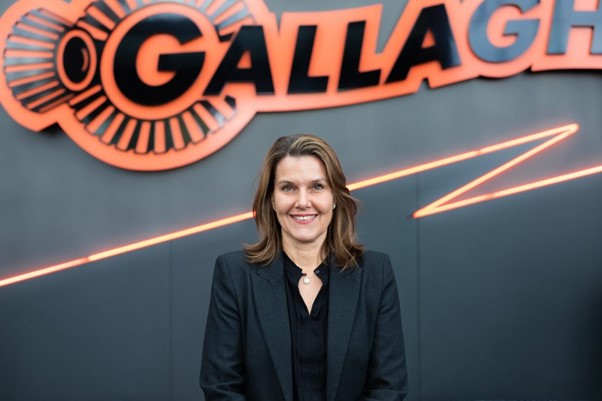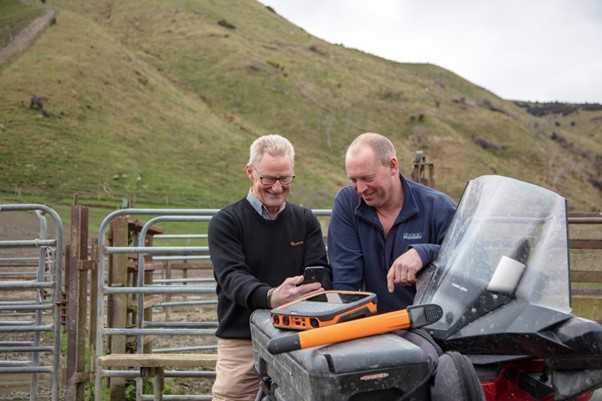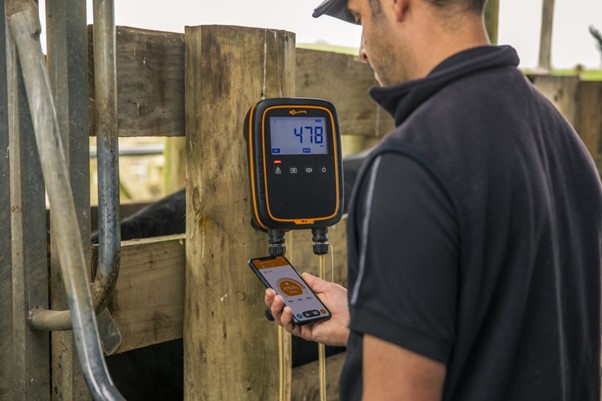 “The days of us developing everything in house are over. When we see a need for a solution, we also look outside.”
“The days of us developing everything in house are over. When we see a need for a solution, we also look outside.”
— Lisbeth Jacobs, Gallagher
Gallagher is one of New Zealand’s largest and most successful Agritech companies. The company was founded in 1938 by Bill Gallagher Senior to commercialise a very simple but ingenious piece of hardware — the world’s first electric fence.
Since then, the Hamilton-based company has been helping farmers harness the power of hardware, software and more recently data, to make their jobs more efficient. Gallagher recognises the future of farming is in technology and the company is committed to making farmers’ lives easier.
Lisbeth Jacobs heads up the Animal Management division worldwide, a $200 million business that develops and manufactures almost all of its products in New Zealand and sells them in over 60 countries around the world.
“Our focus is on connecting our products to a future farm ecosystem or platform and we’re looking to partner with organisations with technology solutions that fit within our ecosystem,” says Jacobs. “The days of us developing everything in house are over. When we see a need for a solution, we also look outside.”
A good example of this strategy is the acquisition of Agersens in 2021. Gallagher first invested in the Australian company in 2016 but the acquisition will enable them to further improve their eShepherd solution and distribute it in Gallagher’s international markets. The eShepherd platform allows farmers to control the location and movement of cattle using a web application and an intelligent, solar-powered neckband connected to the internet.
“Our platform and our focus is on giving farmers the gift of time,” says Jacobs. “With eShepherd you don’t have to walk the paddocks to move your cattle. You can do it from your kitchen while you’re having a cup of coffee.”

The company also recently invested in Christchurch-based Farmote Systems, which has developed a unique new way of automatically recording precise, consistent and reliable pasture data. Other technologies that Gallagher has developed or invested in include automated weighing, livestock performance and water monitoring.
Gallagher’s new platform will bring all of their animal management solutions together in one place so the farmer can tick what technology they use and see all of the data on one platform. They’re also building third party integration with other apps. It promises to make it much easier for farmers to take care of their livestock and the land and provide compliance data because the farmer can track where their animals have been.
“Because of Gallagher’s dominance in our core business of electric fencing, we needed to look at adjacent growth,” explains Jacobs. “That means taking our existing products into entirely new markets or developing new products for our existing markets. We can do that through product development or we can do that through acquisition. If the technology exists already and it aligns with our strategy, then our approach is to talk to the company and see if we can work with them.”
“We can do that in a couple of ways. evelop distribution agreements and build APIs to incorporate their technology and data into our platform. We can invest in startups and help to develop and accelerate their growth by helping them scale quicker. Or we can acquire companies to become part of the Gallagher group. If companies aren’t willing to work with us then we’ll compete with them. If they are, then it makes sense to join forces. But it has to be a win-win. If we do it right, then we win and the partnering company wins. ”
To pursue an acquisition growth strategy you need a few things. You need plenty of money in the bank and a strong balance sheet. You need a focused strategy to identify the right companies to target. And you need the backing of shareholders or in Gallagher’s case, the owners. It’s rare to have all three but Gallagher ticks all the boxes. Just don’t call them corporate venture capitalists.
“We’re not venture capitalists because we don’t make any passive investments,” says Jacobs. “There are lots of venture capital groups in New Zealand and we invest alongside some of them, like Sprout, Icehouse Ventures and Finistere Ventures but we’re active investors. If the only thing a company is after is money, then we’re not interested. The only reason we want to invest and work with startup companies is to use our expertise to help grow their business and ours. We can help them solve technical problems by giving them access to our technical people and their years of experience.”
“We typically look to work with founder teams that are coachable. Some star

tups have a great product but they are run by individuals who are not coachable. Apart from a great team of founders we’re interested in companies with a hardware, software and data component and products that have international appeal. With Gallagher it’s not about doing a quick deal for a quick win. Our goal is to build a $1 billion company and to do that we have to take a long term view and look at the bigger picture.”
Jacobs is encouraging other Agritech companies to do the same.
Read other NZ agritech success stories